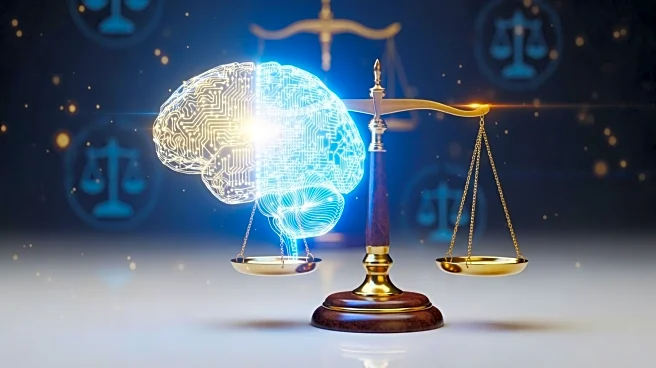What's Happening?
A recent survey conducted by Everlaw and the Association of Corporate Counsel highlights a significant shift in the legal industry, as corporate law departments increasingly adopt Generative AI (GenAI)
technologies. The study, titled 'Generative AI’s Growing Strategic Value for Corporate Law Departments,' reveals that 61% of organizations are likely to challenge traditional law firm pricing models. Despite this trend, 59% of respondents are unaware if their law firms currently utilize GenAI, and 80% do not actively encourage or require its use. The adoption of GenAI by law departments has more than doubled over the past year, enabling in-house counsel to manage more work independently. This shift is seen as a move against the conventional billable hour model, with firms that integrate GenAI efficiency into transparent pricing expected to stand out as modern, client-focused partners.
Why It's Important?
The growing use of GenAI in corporate law departments signifies a potential transformation in the legal industry, particularly concerning billing practices. As law departments become more self-sufficient through technology, they may exert pressure on law firms to reconsider the billable hour model, which has long been a staple of legal billing. This could lead to more competitive pricing and innovative service delivery models, benefiting clients who seek cost-effective legal solutions. Firms that adapt to these changes by leveraging GenAI for efficiency and transparent pricing may gain a competitive edge, positioning themselves as forward-thinking partners in the legal landscape.
What's Next?
As the momentum against the billable hour builds, law firms may face increasing demands from clients to adopt GenAI technologies and offer more transparent pricing models. This could lead to a reevaluation of traditional billing practices and the development of new pricing strategies that align with client expectations. Additionally, firms that fail to embrace these changes risk losing business to competitors who are more agile and technologically advanced. The legal industry may witness a broader shift towards technology-driven solutions, with GenAI playing a central role in shaping future practices.
Beyond the Headlines
The integration of GenAI into legal practices raises ethical and operational questions, such as data privacy and the potential for bias in AI-driven decision-making. As firms navigate these challenges, they must ensure that AI tools are used responsibly and transparently. Furthermore, the shift towards technology may require law professionals to acquire new skills, fostering a culture of continuous learning and adaptation within the industry.









